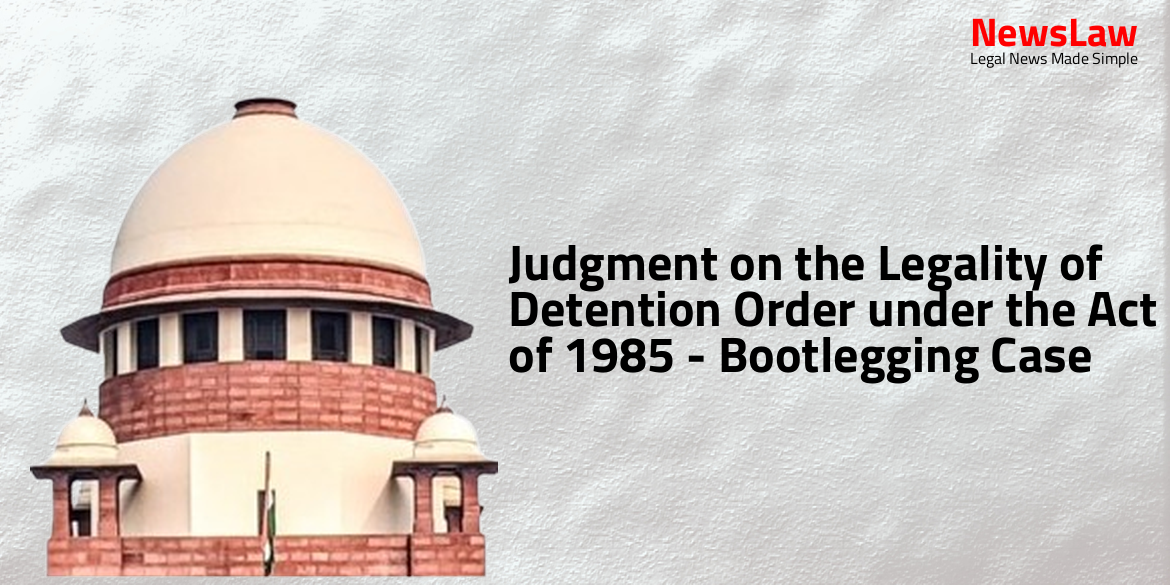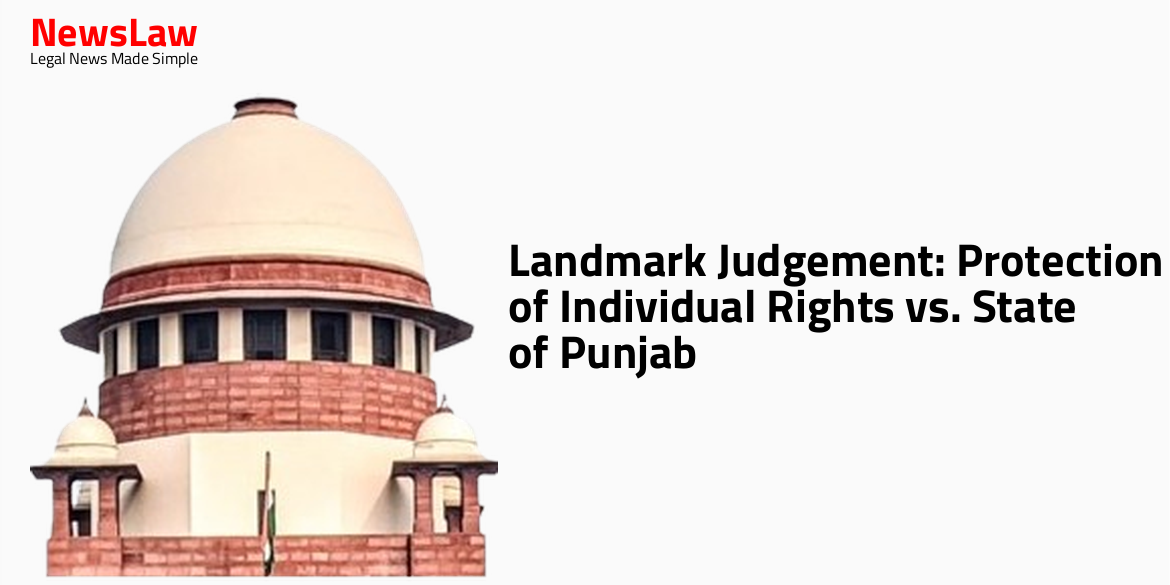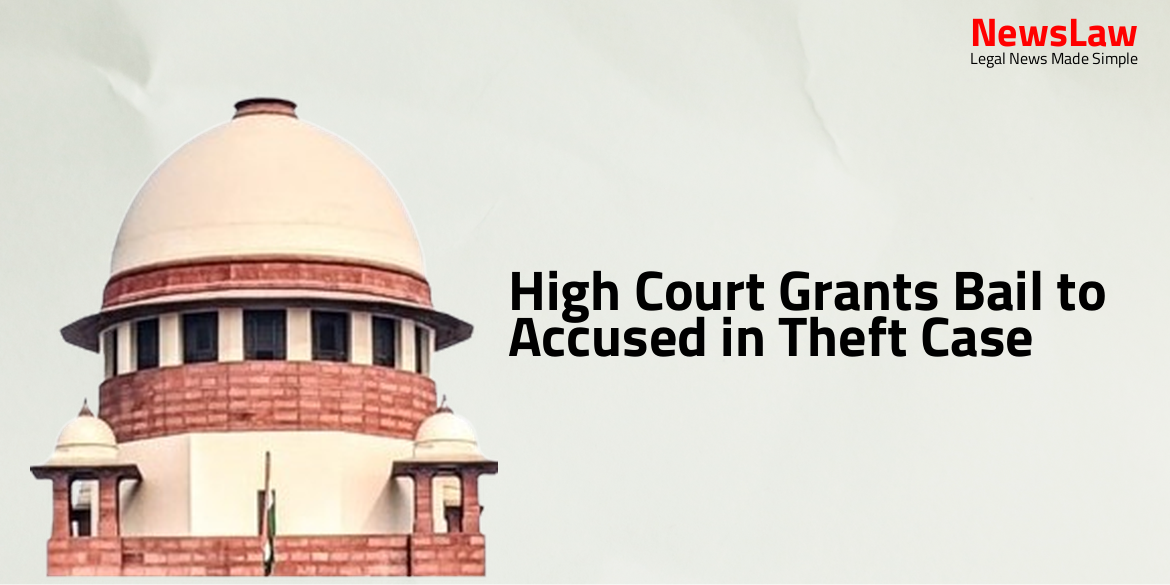In a recent decision by the Gujarat High Court, a pivotal judgment was delivered on the legality of a detention order under the Act of 1985 in a bootlegging case. The Court carefully examined whether the detention order was sustainable in law, particularly in relation to the maintenance of public order. This case has raised important questions regarding the distinction between law and order and public order in preventive detention laws. Stay tuned for more insights on this groundbreaking ruling.
Facts
- The petitioner has been declared a bootlegger under the Gujarat Prevention of Anti-social Activities Act, 1985.
- The petitioner, who is currently the Police Commissioner of Ahmedabad, has challenged the order declaring him a bootlegger.
- The legality and validity of the order have been disputed by the petitioner.
Issue
- The issue at hand is the legality of the order of detention passed by the Detaining Authority under the Act of 1985.
- The focus is on whether the detention order is sustainable in law based on the submissions made by all parties involved.
- The analysis will determine the compliance of the detention order with the provisions of the Act of 1985.
Arguments
- The learned advocate for the detenue argues that the grounds of detention have no connection to public order but are centered around law and order.
- The registration of the alleged offence does not impact public order as defined in the Act of 1985.
- The offences in question do not pose a threat to public order but may only disrupt law and order.
- The detenue’s activities are not detrimental to public order but only to the maintenance of law and order.
- Learned State Counsel opposing the application based on detenue being a habitual offender.
- Detenue’s activities impacting society at large.
- Detaining Authority considered detenue’s antecedents and past activities.
- Impugned order aimed at preventing detenue from acting in a manner prejudicial to public order in Ahmedabad.
Analysis
- The petitioner may be punished for alleged offences committed by him, but these acts did not affect the even tempo of the community’s life.
- Merely being a bootlegger does not warrant preventive detention unless their activities affect or are likely to affect the maintenance of public order.
- The authority wrongly concluded that the detenue’s activities were ‘prejudicial to the maintenance of public order’ based on five prohibition cases.
- The various offences under the Prohibition Act for which the petitioner was charged do not directly impact public order.
- Incidents of beating by the petitioner, while alleged, do not influence public order and were not enough to deny bail in those cases.
- Disturbance of law and order does not necessarily equate to disturbance of public order.
- Not every act of assault or injury to specific persons leads to public disorder.
- Culprits involved in ordinary criminal law cases cannot be detained under preventive detention laws.
- There must be a distinction made between serious forms of disorder affecting the community and minor breaches of peace with local significance.
- A mere disturbance of law and order is not sufficient for action under the Preventive Detention Act; it must be a disturbance that affects public order.
- In the judgment, it was carefully considered if the offences alleged against the petitioner and the witness allegations caused insecurity, panic, or terror among the public.
- The offenses or allegations were determined to not have created feelings of insecurity or panic among the public, therefore not affecting public order.
- The material on record was deemed insufficient to show adverse effects on public order due to the detenue’s activities.
- The subjective satisfaction of the detaining authority was found to not be legal, valid, or in accordance with the law.
- Based on the above reasons, the petition was allowed.
Decision
- The Rule has been made absolute accordingly
- Direct service is permitted
- The detenue is directed to be set at liberty forthwith if not required in any other case
- The order dated 21.12.2023 passed by the respondent authority is quashed
Case Title: ABDULRAHIM @ TILLI MOHAMMEDHUSEN MANGTU SHAH Vs. STATE OF GUJARAT
Case Number: R/SCA/3444/2024



